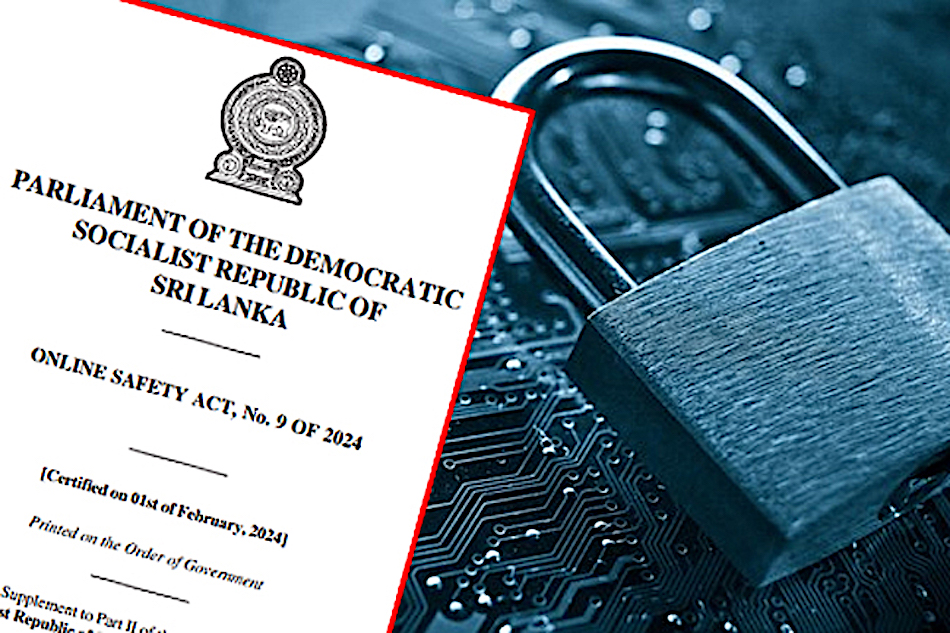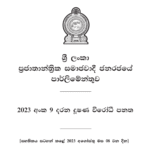The Online Safety Act of Sri Lanka, officially named “The Online Safety Act No. 51 of 2023”, was enacted on November 29, 2023. The law aims to protect individuals from harmful online content, including misinformation, cyberbullying, and defamation. It empowers authorities to take legal action against those who spread false information or engage in harmful online activities. While the Act seeks to enhance online safety, it has sparked debates concerning its potential impact on freedom of expression and privacy.
Cases filed in Sri Lanka under Online Safety Act.
1. First Arrest Under the Act
- Date: February 2024
- Details:
The first arrest under the Online Safety Act took place in February 2024. The arrested individual was accused of running a smear campaign online against the Sri Lankan government. The campaign allegedly aimed to create unrest and was financially motivated. Investigations revealed that the accused was reportedly following instructions from a Sri Lankan politician and was engaged in the act while also exchanging foreign currency.
This case marks a significant moment in the enforcement of the Online Safety Act, which was enacted to counter the spread of disinformation and harmful online activities. - Legal Action:
The suspect was arrested by the Criminal Investigations Department (CID) and faced charges related to online defamation, incitement, and misinformation. - Reference: Colombo Gazette
2. Defamation Lawsuits by Online Money Lenders
- Date: April 2024
- Details:
In April 2024, several online money lending companies initiated legal action under the Online Safety Act, suing three individuals for online defamation. The plaintiffs claimed that the defendants falsely labeled online money lenders as an “online mafia” and spread harmful, misleading propaganda about them on social media. The allegations included claims that these businesses were involved in usury, illegal activities, and exploitation.
The money lenders sought Rs 4.25 billion in compensation for the alleged defamation, arguing that the false accusations were damaging to their reputation and business operations. - Legal Action:
The individuals accused of spreading defamatory statements faced civil lawsuits under the Online Safety Act, which addresses online defamation, harm to reputation, and the spread of false information. - Reference: Sri Lanka Brief
3. Legal Action by Former PUCSL Chairman Janaka Ratnayake
- Date: April 2024
- Details:
Janaka Ratnayake, the former Chairman of the Public Utilities Commission of Sri Lanka (PUCSL), filed a complaint under the Online Safety Act in April 2024. He accused several individuals of spreading false information and harassing him online. Ratnayake claimed that the individuals were deliberately using social media to defame him, make baseless accusations, and damage his professional reputation.
This case is notable as it represents a high-profile use of the Online Safety Act to protect individuals from online harassment and malicious rumors. - Legal Action:
The Colombo Chief Magistrate’s Court intervened and issued a conditional order to prevent the respondents from continuing to spread false or defamatory information about Ratnayake. The court’s decision highlights the role of the Online Safety Act in protecting public figures and addressing harmful online activities. - Reference: Daily Mirror
4. Hiru Media Network vs. Newscenter
- Date: January 2025
- Details:
Hiru Media Network filed a legal case against Newscenter for broadcasting defamatory comments linking Hiru Media to illegal activities. The Kaduwela Magistrate’s Court issued a conditional order under Sri Lanka’s Online Safety Act, halting the broadcasts. Hiru Media claimed that the comments, which involved former MP Duminda Silva, were false and damaging to their reputation. - Legal Action:
Hiru Media sought legal action to protect its reputation from these false claims. This case marked a significant legal application of the Online Safety Act to address defamatory content in the media - Reference: Newswire















2 responses to “List of Cases Filed under the Online Safety Act of Sri Lanka”
[…] corrupt individuals, and criminals. From the first application of the law in 2024 to this case, and all the times in between, there’s not been a single instance where women or children have been […]
[…] and criminals. From the first application of the law in 2024 to this case and all the times in between there’s not been a single instance where women or children have been […]